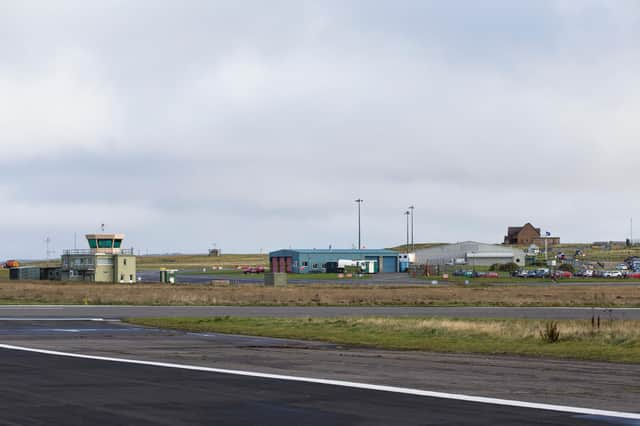Air traffic proposals ‘must be shelved’


Far from being a smooth well-planned operation the report paints a picture of inadequate planning, poor resourcing and possibly intractable problems over recruitment of staff in Inverness.
Distributed under a Scottish Government logo and marked “Official – Sensitive”, it is “an evidence-based snapshot .. It reflects the views of the independent Review Team and is owned by the Digital Assurance Office who will decide on appropriate distribution and escalation”.
Advertisement
Hide AdAdvertisement
Hide AdThe report recognises that HIAL staff in the islands “are disaffected and concerned at the prospect and unclear how many will ultimately be prepared to make the move. The programme is estimating a 40 per cent acceptance rate.
“Given the long lead time for training to enable operation of Radar … the programme acknowledges that it will be challenging to ensure a full complement of ATCOs can be provided to cover shift patterns”
The Review Team found the project “under-resourced…The programme is aware of the need for more resource, including engineering and is attempting to acquire it but there is no documented plan against which the recruitment is being done”.
The report states: “The ATMS (Air Traffic Management Strategy) programme is acknowledged as the biggest and most complex that HIAL has ever undertaken and is transformational for the way that HIAL delivers air traffic management.
Advertisement
Hide AdAdvertisement
Hide AdIt noted: “The programme is preparing to deliver in a complex context which includes changes in the senior leadership of the organisation and a high level of political interest”.
Political reaction to the report was furious. Roddie MacKay, leader of Comhairle nan Eilean Siar, said: “By any sensible measure, the least that should happen now is that the whole project is put on hold pending a full review of all the issues raised”.
Highlands and Islands Convervative MSP, Donald Cameron, said: “This bears out everything I and many others have been saying. There must now be a complete reappraisal of the whole programme and transparency around the very serious issues it raises”.
Shaun Fraser, who contested the Western Isles seat for Labour at the Holyrood election, described the report as “explosive” and added: “It casts doubt not only on the need for centralisation but the competence of those desperate to achieve it”.
Advertisement
Hide AdAdvertisement
Hide AdHIAL chief operating officer Gary Cobb said the review had achieved what it set out to do, namely highlighting areas for improvement – and he said 10 of Digital Scotland’s 12 action plan recommendations had already been addressed.
“It’s more about process and procedures,” he said: “We’re always looking to improve. Reports like these are good because they tell us what areas we need to work on." He said he expected a follow-up report in the summer.